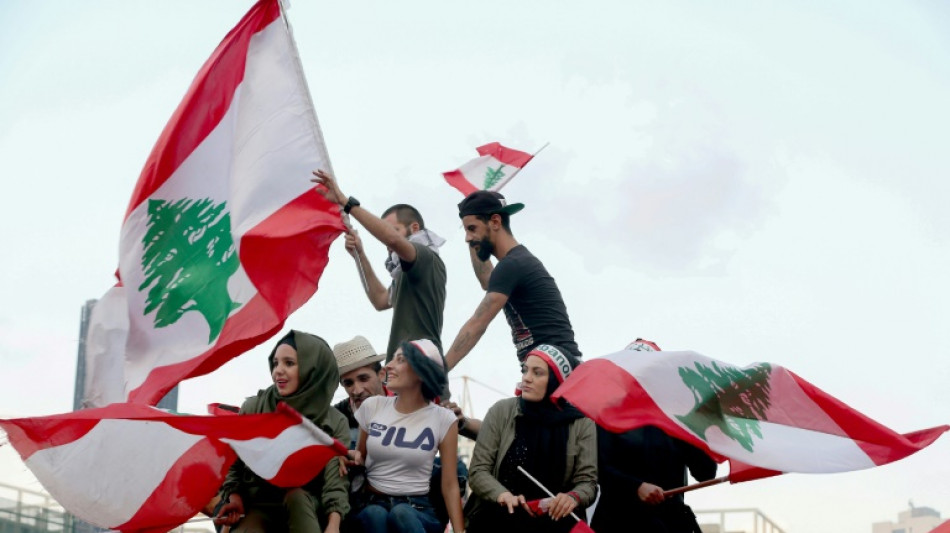
-
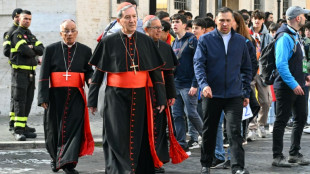 Cardinals lay groundwork for conclave, hope for quick vote
Cardinals lay groundwork for conclave, hope for quick vote
-
More automakers drop earnings guidance over tariffs

-
 William and Kate release romantic image on low-key anniversary
William and Kate release romantic image on low-key anniversary
-
Israel says strikes Syria to shield Druze as clashes spread
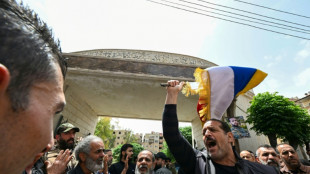
-
 Champions Cup format 'not perfect' says EPCR boss
Champions Cup format 'not perfect' says EPCR boss
-
Iran hangs man as Israeli spy after 'unfair' trial: activists
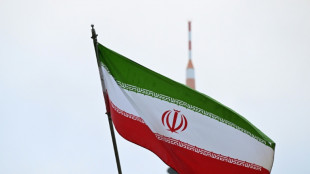
-
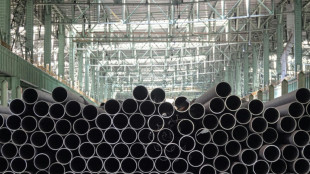 Stock markets mostly rise ahead of US economic data, tech earnings
Stock markets mostly rise ahead of US economic data, tech earnings
-
German growth better than expected but tariff turmoil looms

-
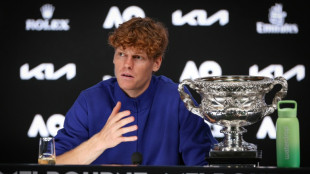 Sinner denies beneficial treatment in doping scandal ahead of Rome return
Sinner denies beneficial treatment in doping scandal ahead of Rome return
-
Eurozone economy grows more than expected despite US tariff turmoil
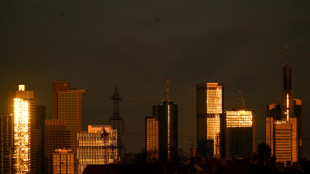
-
 Toulouse hooker Mauvaka out of Champions Cup semi
Toulouse hooker Mauvaka out of Champions Cup semi
-
Germany's next finance minister, 'bridge-builder' Lars Klingbeil
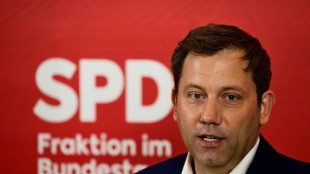
-
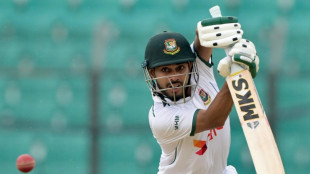 Mehidy century puts Bangladesh in command against Zimbabwe
Mehidy century puts Bangladesh in command against Zimbabwe
-
Steelmaker ArcelorMittal warns of uncertainty
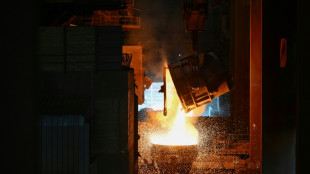
-
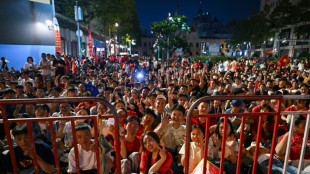 Vietnam's Gen-Z captivated by 50-year-old military victory
Vietnam's Gen-Z captivated by 50-year-old military victory
-
Moroccan-based cardinal says Church does not need Francis 'impersonator'
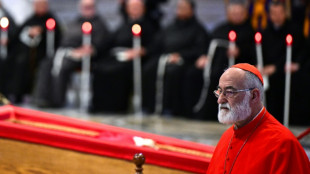
-
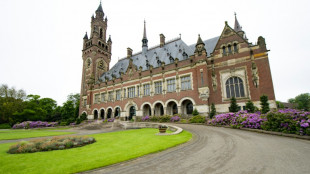 US official tells UN top court 'serious concerns' over UNRWA impartiality
US official tells UN top court 'serious concerns' over UNRWA impartiality
-
Jeep owner Stellantis suspends outlook over tariffs
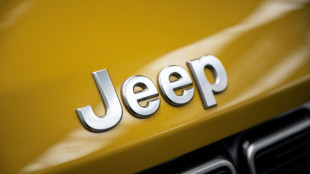
-
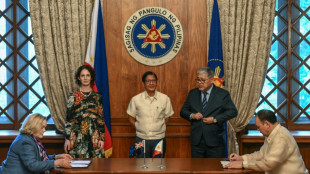 New Zealand, Phillippines sign troops deal in 'deteriorating' strategic environment
New Zealand, Phillippines sign troops deal in 'deteriorating' strategic environment
-
Aston Martin limits US car imports due to tariffs

-
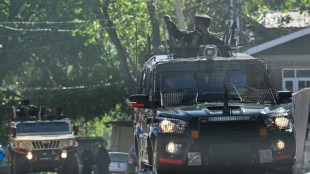 Pakistan says India planning strike as tensions soar over Kashmir
Pakistan says India planning strike as tensions soar over Kashmir
-
Australian triple-murder suspect allegedly cooked 'special' mushroom meal
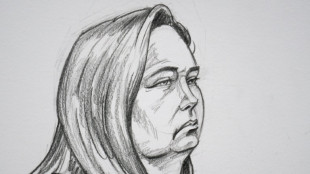
-
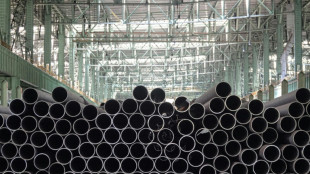 Most stock markets rise despite China data, eyes on US reports
Most stock markets rise despite China data, eyes on US reports
-
TotalEnergies profits drop as prices slide
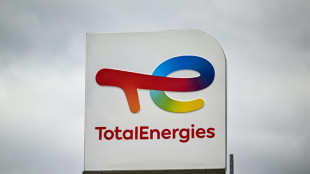
-
 Volkswagen says tariffs will dampen business as profit plunges
Volkswagen says tariffs will dampen business as profit plunges
-
Jeep owner Stellantis suspends 2025 earnings forecast over tariffs
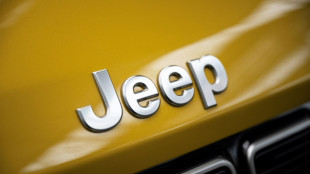
-
 China's Shenzhou-19 astronauts return to Earth
China's Shenzhou-19 astronauts return to Earth
-
French economy returns to thin growth in first quarter
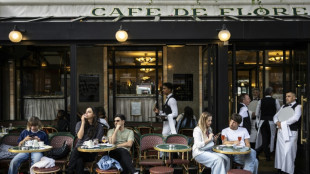
-
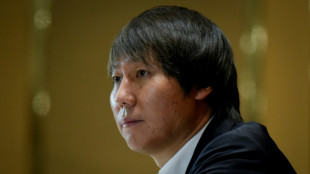 Ex-Premier League star Li Tie loses appeal in 20-year bribery sentence
Ex-Premier League star Li Tie loses appeal in 20-year bribery sentence
-
Belgium's green light for red light workers
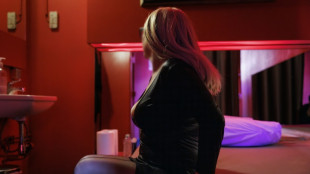
-
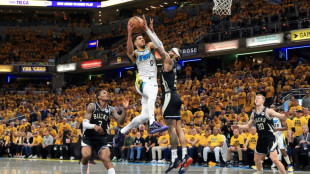 Haliburton leads comeback as Pacers advance, Celtics clinch
Haliburton leads comeback as Pacers advance, Celtics clinch
-
Rahm out to break 2025 win drought ahead of US PGA Championship

-
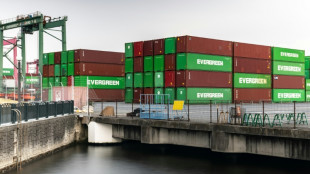 Japan tariff envoy departs for round two of US talks
Japan tariff envoy departs for round two of US talks
-
Djurgarden eyeing Chelsea upset in historic Conference League semi-final

-
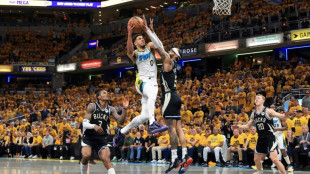 Haliburton leads comeback as Pacers advance, Pistons stay alive
Haliburton leads comeback as Pacers advance, Pistons stay alive
-
Bunker-cafe on Korean border paints image of peace
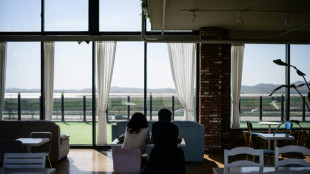
-
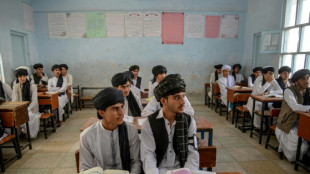 Tunics & turbans: Afghan students don Taliban-imposed uniforms
Tunics & turbans: Afghan students don Taliban-imposed uniforms
-
Asian markets struggle as trade war hits China factory activity
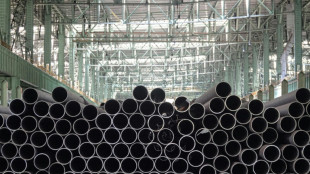
-
 Norwegian success story: Bodo/Glimt's historic run to a European semi-final
Norwegian success story: Bodo/Glimt's historic run to a European semi-final
-
Spurs attempt to grasp Europa League lifeline to save dismal season
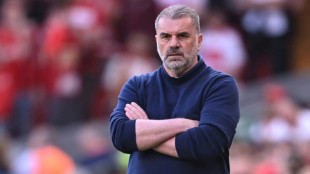
-
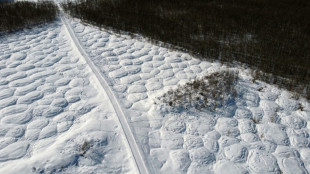 Thawing permafrost dots Siberia with rash of mounds
Thawing permafrost dots Siberia with rash of mounds
-
S. Korea prosecutors raid ex-president's house over shaman probe: Yonhap
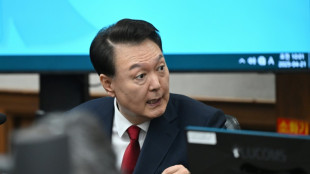
-
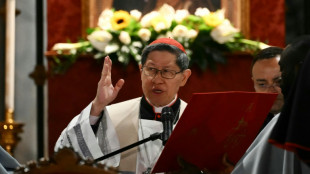 Filipino cardinal, the 'Asian Francis', is papal contender
Filipino cardinal, the 'Asian Francis', is papal contender
-
Samsung Electronics posts 22% jump in Q1 net profit
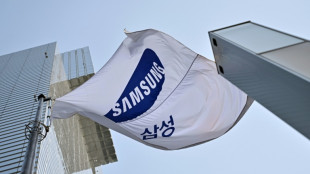
-
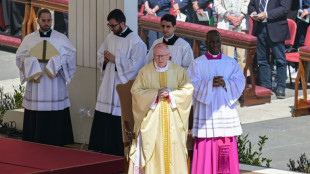 Pietro Parolin, career diplomat leading race to be pope
Pietro Parolin, career diplomat leading race to be pope
-
Nuclear submarine deal lurks below surface of Australian election
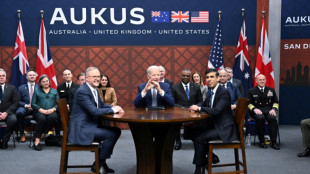
-
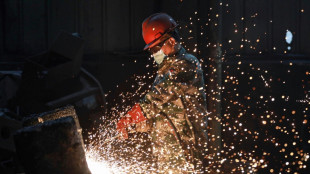 China's manufacturing shrinks in April as trade war bites
China's manufacturing shrinks in April as trade war bites
-
Financial markets may be the last guardrail on Trump
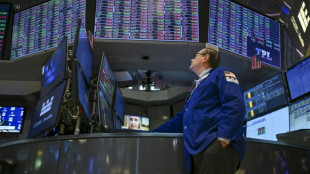
-
 Swedish journalist's trial opens in Turkey
Swedish journalist's trial opens in Turkey
-
Kiss says 'honour of a lifetime' to coach Wallabies at home World Cup
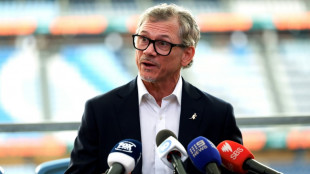

Young Lebanese voters shake grip of traditional parties
Lebanese law student Charbel Chaaya spent the election campaign distributing flyers in Beirut and trying to convince his parents to vote for independents to shake the grip of established parties.
The 21-year-old activist is one of many young voters who went against their parents' political views, and helped propel at least 13 independents to parliament last week for the first time in decades.
"My parents think I'm too idealistic, that this country will never change," he said, adding that his father voted for a traditional Christian party, the Lebanese Forces.
"There is a generational gap," Chaaya said. "Our generation knows that sectarian and traditional politics simply don't work anymore."
Chaaya is part of a new generation seeking a progressive approach to politics, blaming established parties dating from Lebanon's 1975-1990 civil war for an economic meltdown that has pushed thousands to flee the country.
This has widened a generational gap between young people voting for change and an older generation often attached to civil war-era parties.
The Iran-backed Shiite Hezbollah group and its allies fell just short of the 65 seats needed to control the 128-seat parliament, losing their clear-cut majority.
This time, the May 15 polls brought in a record number of independents to parliament, totalling a small but significant tenth of the assembly.
- 'Different language' -
Chaaya headed his university's secular club, one of dozens of political groups bringing together young supporters of a mass protest movement that began in October 2019.
In his Chouf-Aley district, southeast of Beirut, voters ousted Hezbollah ally Talal Arslan in favour of independent newcomer Mark Daou, a university lecturer and advertising professional.
A massive number of those campaigning for his list were young people in their twenties, Daou said.
"We speak a different language than the traditional parties, that's why people like us," said Daou. "We don't speak in sectarian terms."
Lebanon shares power among its 18 recognised religious communities, and politics are often treated as a family business.
This was a clear break from voting patterns in Lebanon, where each community usually supports politicians from their own religious sect.
Polling expert Rabih Haber of Statistics Lebanon said that while voter data could not be broken down by age, on social media young people seemed to express far greater support for independent candidates than established parties.
Newly-elected independent MP Elias Jarade, a 54-year-old Harvard-educated ophthalmologist, said most voters who came up to him were young people from different political backgrounds.
"All those who came to our tents and said they voted for us were young men and women, from different regions, religions and political backgrounds," Jarade said.
He was one of two independent MPs who snatched seats from allies of the powerful Hezbollah in its south Lebanon strongholds.
The independent MPs are mostly university professors and respected professionals who entered politics after the 2019 mass protests.
- 'Space to have a conversation' -
Karl, a 30-year-old Beirut resident, went against his parents' wishes and voted for an independent in the country's south, after growing disillusioned with the Christian Free Patriotic Movement of President Michel Aoun, a Hezbollah ally.
Karl, asking that only his first name be used, said that there is a trend of younger people voting for independents, despite their limited gains in the south.
"At the same time the older generation is also transmitting its own war trauma to their children," he said.
On his way to vote in his hometown, Karl passed by the southern town of Ghazieh, where he saw children chanting slogans and bearing flags for Hezbollah and its ally the Shiite Amal movement.
The scene was emblematic of the tight hold the two groups have in south Lebanon, where independents are often threatened and intimidated, according to observers and rights groups.
Sami, 21, who also asked for his first name to be used, said he had failed to dissuade his parents from voting for Hezbollah and Amal.
"I thought I had convinced my mother, but in the end there is always something that pulls her back to her beliefs," he said, a common complaint among young voters AFP spoke to.
But Sami said he was cautiously optimistic about the independents' modest victory in the south.
"Our region was monochrome, there was no space for debate on alternatives to these parties," Sami said. "This opened up, at least, some space to have a conversation."
D.Moore--AMWN